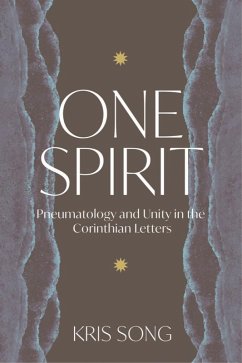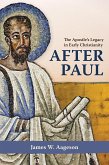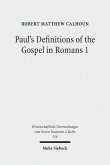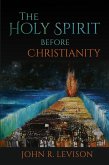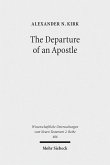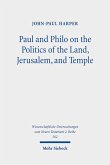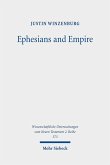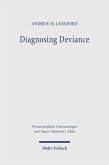Many of the prevailing scholarly positions in Pauline studies have focused on the ethnicity of Jews and Gentiles as the dividing obstacle towards unity. Proposed solutions to this dichotomy seem to raise more questions than answers. Does the Holy Spirit transform new communities in Christ into a transcendent "third race" (as has been argued from some new perspective scholarship)? Does Paul regard the Spirit as providing a distinct genealogical basis for Gentiles to become recognized as children of Abraham (as argued by some Paul-within-Judaism-scholars)?
One Spirit examines the ways in which Paul understands how the Holy Spirit establishes unity among the various groups of believers he sought to bring together. Kris Song recasts Paul's unitive dimensions of the Spirit in terms that join Jewish and Gentile differences around the valence of cultic expression and temple worship. Ultimately, Paul regards the Spirit as establishing a new cultic space around the person of Christ such that Jewish and Gentile believers are permitted to retain important differences yet join together in common worship of the same Lord.
Rooted in an extensive background study clarifying the uses of pneuma and its function in Pauline thought, and elaborating Pauline pneumatology in the context of the Corinthian correspondence (away from the dominance of recent discussion around Romans and Galatians), One Spirit occupies a unique space from which to re-enter and improve some of the more dominant paradigms in Pauline theology. In rendering a community of Pauline churches that struggled to accommodate both Jewish and Gentile customs of worship, this study further critiques comparatively simplistic supersessionist readings concerning Paul's view of Israel. In an age where the Spirit is ironically the subject of significant disunity among churches, One Spirit provides fresh insight into the shape and manner of the unity of the Spirit that Paul intended to promote.
One Spirit examines the ways in which Paul understands how the Holy Spirit establishes unity among the various groups of believers he sought to bring together. Kris Song recasts Paul's unitive dimensions of the Spirit in terms that join Jewish and Gentile differences around the valence of cultic expression and temple worship. Ultimately, Paul regards the Spirit as establishing a new cultic space around the person of Christ such that Jewish and Gentile believers are permitted to retain important differences yet join together in common worship of the same Lord.
Rooted in an extensive background study clarifying the uses of pneuma and its function in Pauline thought, and elaborating Pauline pneumatology in the context of the Corinthian correspondence (away from the dominance of recent discussion around Romans and Galatians), One Spirit occupies a unique space from which to re-enter and improve some of the more dominant paradigms in Pauline theology. In rendering a community of Pauline churches that struggled to accommodate both Jewish and Gentile customs of worship, this study further critiques comparatively simplistic supersessionist readings concerning Paul's view of Israel. In an age where the Spirit is ironically the subject of significant disunity among churches, One Spirit provides fresh insight into the shape and manner of the unity of the Spirit that Paul intended to promote.
Dieser Download kann aus rechtlichen Gründen nur mit Rechnungsadresse in A, D ausgeliefert werden.

